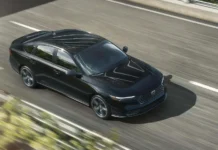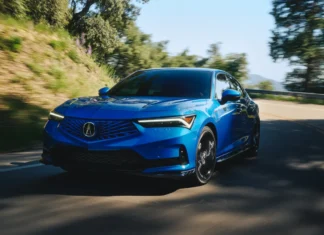
Fisker is looking to restructure as it filed for Chapter 11 bankruptcy protection this week.
On Monday, Fisker Inc. joined the likes of Lordstown Motors as an EV startup filing for bankruptcy in an effort to find some path forward in a tough market. “Like other companies in the electric vehicle industry,” Fisker said in a prepared statement, “we have faced various market and macroeconomic headwinds that have impacted our ability to operate efficiently.”
To buttress that last point, the company just recalled 6,864 of its Ocean SUVs within the past two weeks for a potential loss of drive power. Under that campaign, the Motor Control Unit (MCU) and/or Vehicle Control Unit (VCU) may have a software issue that unexpectedly trips a fail-safe mode, causing the vehicles to lose propulsion. Although the automaker says it can fix the issue through an over-the-air update, the problem affects 100% of the recall population of 2023-model Oceans.
Such software complications and hardware issues, including braking problems, an issue where the vehicle will shift from drive to neutral to park when stopping and requiring a power-cycle to resolve the issue, and failure of doors to open occasionally all led to customers and media alike referring to the Ocean’s development as half-baked.
A path forward?
As part of its Chapter 11 proceedings, the automaker says it sees selling its assets as “the most viable path forward for the company.” According to a filing with the U.S. Bankruptcy Court in Delaware, Fisker’s assets range from $500 to $1 billion, while it bears $100 million to $500 million in liabilities with as many as 999 creditors.
The current iteration of Fisker Inc. started life in 2016, as the second car company founded by designer Henrik Fisker. He was also responsible for the original Fisker Karma that launched in 2011, and pitched this new entity with the Ocean SUV (the only model that actually made it to sale), the smaller Pear, the Alaska pickup and the Ronin sports car as a foil to all-conquering Tesla, the Big Three and other upstart EV companies like Lucid and Rivian.
While the company made aggressive targets, the publicly traded company wound up delisted from the New York Stock Exchange in March, after news of its dire financial situation broke and share prices imploded, falling below $1. The company sought ties with a major automaker to secure a $350 million lifeline from an officially unnamed investor — though the general consensus was that Fisker was in talks with Nissan. Those talks fell through, leaving Fisker with little recourse other than to seek bankruptcy protection.
























